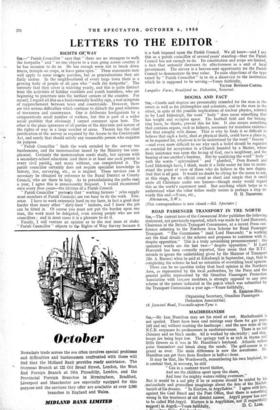DOGMA AND FACT
SIR,—Creeds and dogmas are presumably intended for the man in the street as well as for philosophers and scientists, and to the man in the street, in spite of the possible implications of nuclear physics, referred to by Lord Iddesleigh, the word ' body " does mean something that has weight and occupies space. The football field and the boxing- ring have, he thinks, proved this for him. It also means something that contains organs, such as kidneys, necessary for mundane existence but that atrophy with disuse. That is why he finds it so difficult to believe that such a body, shed at physical death, could have a place in, or be required for, whatever is to be understood by the word " heaven " —and even more difficult to see why such a belief should be regarded as essential for acceptance in a Church founded by a Master, whose basic insistence was upon the loving of God, one's neighbour, and the bearing of one another's burdens. But by qualifying the word " body " with the words " spiritualised " and " glorified,' Dom Russell and Lord Iddesleigh have, I think, made it a little easier for him to under- stand the point of view of those who do believe in the new dogma. And that is all gain. It would no doubt be crying for the moon to ask, at this stage, for ah official creed so short and simple that it could unite all Christians under one banner—though many would regard this as the world's supremest need. But anything which helps us to understand what the other fellow really means is perhaps a step to-
(This correspondence is now closed.—Ed. Spectator.)


















 Previous page
Previous page